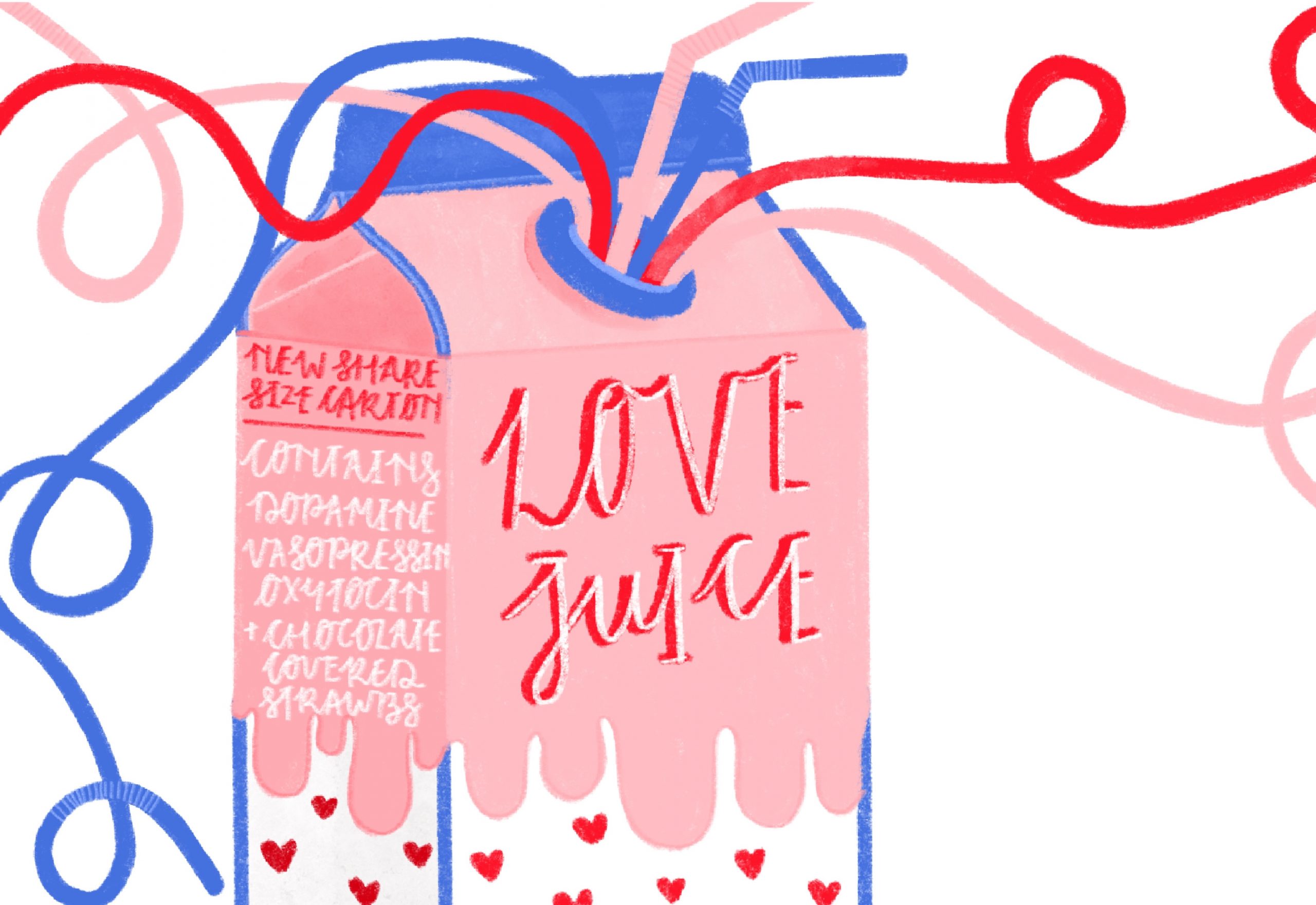POLYAMORY: A BETTER WAY TO LOVE?
By Aya Kurteva / 24 May 2021

Illustration by Hope Bullen (@a.littlebitofhope)
There are different types of love. We love our friends, our families, our partner(s), our jobs (hopefully) and our passions. Yet, for all the ways we go about love, our ideas of romantic love are still rooted in archaic tradition.
Gay marriage is only legal in 29 countries, many LGBTQ+ people are still unable to love freely without fear of persecution around the globe, and expectations of heteronormative relationships are heavily influenced by society. However, it’s safe to say that things are slowly changing, although not at the rate most of us would like. Our understanding of love is broadening and other forms of romantic love are paving their way into the mainstream. One of these forms is polyamory.
Polyamory, also commonly referred to as ethical non-monogamy, is defined as 'having simultaneous close emotional relationships with two or more other individuals, viewed as an alternative to monogamy’. Not to be confused with polygamy/polyandry which means being married to more than one individual. There is something understandably daunting about polyamory. It’s difficult enough manoeuvring a monogamous relationship, let alone a polyamorous one which feels like juggling many different sized objects at once: potentially tiring and slightly confusing.
For one, there are different types of polyamorous relationships. Some people may choose a Hierarchical Polyamory, in which they have a ‘primary’ partner while remaining open to other ‘secondary’ partners. The opposite also exists with Non-hierarchical Polyamory, where each person is of equal importance in the relationship. The definitions continue with Solo Polyamory where a person has multiple intimate relationships but leads an independent lifestyle, such as separate finances and living situations. There’s also Quad Polyamory in which four people are intimately connected. Apart from these, there are many more variations of polyamory that contribute to what it means to be polyamorous.
Over time, we have succumbed to the idea that monogamy is natural. But maybe, the exact opposite could be true. Monogamy may be culturally normal, but that doesn’t mean it’s natural. A friend once asked me: ‘If I can love my brother and sister equally or my mother and father, can I be in love with more than one person too?’ Perhaps the answer to that question could be a tentative… yes. David Barash in Explained: Monogamy, says that we have to recognise that, ‘because monogamy is unnatural, it’s something we have to work for if we want it. One of the things that make human beings particularly interesting, perhaps even unique in the animal world, is that we are capable of doing things which are unnatural.’ Monogamy is beautiful in its own way, but we have to remember that it’s a choice.

Photo by Christopher Beloch on Unsplash
I know what you’re thinking. Doesn’t this sound like a lot of ‘facts’ to excuse cheating or that polyamory is just commitment issues in sheep’s clothing?
The answer here is a straight-up no. Polyamory most definitely is not an excuse for infidelity. Polyamory, like any human relationship, needs clear cut boundaries, consent and communication to function. If anything, I think polyamory encourages communication in a way that we are sometimes too scared to do in one-on-one relationships, simply because there are more people involved.
Another common myth surrounding polyamory is that it’s only manageable for people who don’t get jealous.
Jealousy is a human emotion; everybody gets jealous. Many people feel jealousy at some point in a relationship, but the point is: how do we react to our jealousy when we do feel it? Polyamory just means that you have to deal with jealousy more openly and honestly. There’s a stigma surrounding jealousy with people assuming that it goes hand in hand with controlling behaviour and insecurity. In some cases, this may be true, but it would be jumping to conclusions to say that all jealousy leads to this. Maybe if we viewed jealousy as a door to better communication rather than something that needs to be stamped out, it could lead to healthier relationships of all kinds. But this starts with accepting that it exists, especially in polyamorous relationships.
A further misconception is the idea that polyamory simply means ‘you don’t love your partner enough to be in a monogamous relationship’. So, let’s talk philosophy.
A Romantic philosophy of love preaches that we should love our partners completely. Their imperfections should be adored and supported; we embrace them without wanting to change them. This is all fine and dandy considering the baggage we all bring into our relationships (a shout-out to my previous partners: thanks for dealing with my shit), however, there’s a danger with this mindset. There’s a danger because one of the things that make us better people is our ability to change; to change our politics (god knows we have a lot of work to do here), to change our morals and, most importantly, to change our actions. Some things we can choose to accept about our partners (like that strange clicking noise their jaw makes when chewing) but other things we cannot accept (like their continual lashing out at us due to their own insecurities). But, if we can’t accept everything about the people we love, do we really love them?

Photo by Deon Black on Unsplash
The answer is YES. Instead of a Romantic form of love, Alain de Botton urges us to try a Greek form of loving.
Acceptance of our partners is important in romantic relationships, but so is our willingness and understanding that we need to work on ourselves. ‘For the Greeks,’ says de Botton, ‘given the scale of our imperfections, part of what it means to deepen love is to want to teach- and to be ready to be taught’. Essentially, working together to be held accountable for the ugliest parts of ourselves is perhaps the truest form of love; we must encourage one other to grow.
Bringing it back into our conversation concerning polyamory, this Grecian approach of teaching gives us a lot to work with. For example, we can develop a more positive attitude when confronted with the fact that our jealousy will always exist. If we love the Greek way, we can learn how to handle our jealousies and teach one another personal boundaries. We can even take it a step further: society needs to open up and be taught that love cannot be confined into a small ‘accepted’ space. By making more room for new definitions of romantic love, like polyamory, we are simply creating a place where more love can exist.
This being said, I’m not advocating or trying to convince anyone that polyamory is a better way to go about relationships. There’s no such thing as ‘better’ when it comes to love. Rather, I am advocating for an acceptance that love is adaptable and couples (or throuples or whole communities of lovers) can create their own rules. Also, I am advocating that love is a skill and we can get better at it if we put in the work.
If we dedicate more time to teaching each other how to love instead of arguing over what love is ‘valid’ in society, we would all have the chance to find the type of love that we deserve.
Art by
Words by
Share this article

